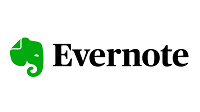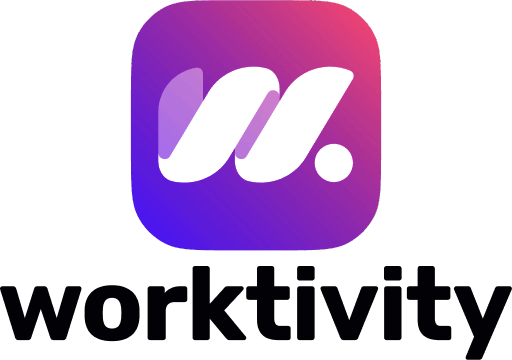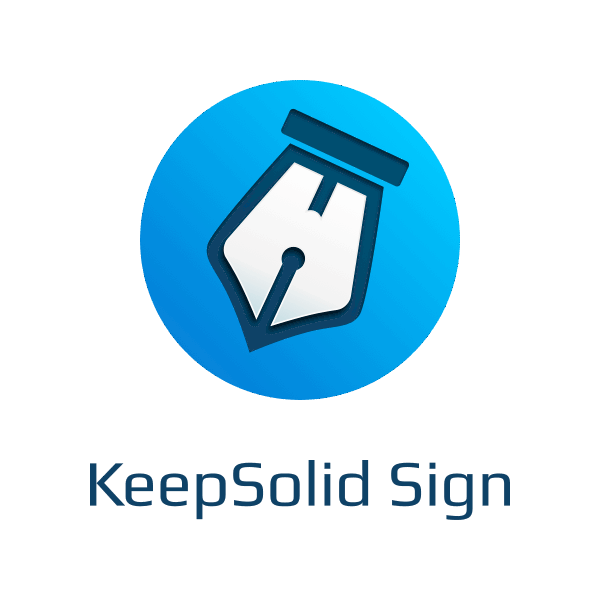Description

Evernote

Restyaboard
Comprehensive Overview: Evernote vs Restyaboard
Certainly! Let's delve into a comprehensive overview of Evernote and Restyaboard, focusing on their primary functions, target markets, market share, user base, and key differentiating factors.
Evernote
a) Primary Functions and Target Markets
-
Primary Functions:
- Evernote is primarily a note-taking and organizational tool. It allows users to capture notes in various formats, including text, audio, and images. Evernote offers features like multi-device synchronization, web clipping, task management, and collaboration tools, allowing users to share notes and work on projects with others.
- Additional functionalities include document scanning, to-do lists, handwriting recognition, and integration with third-party apps like Google Drive, Slack, and Microsoft Teams.
-
Target Markets:
- Evernote targets a wide array of users, including individual and personal users, professionals, students, and small to medium-sized enterprises (SMEs). It is designed for anyone looking to organize their personal or professional life more efficiently.
b) Market Share and User Base
- Market Share and User Base:
- Evernote has been a prominent player in the productivity and note-taking software market for many years, especially since its emergence in the late 2000s. While its market share has seen fluctuations due to increasing competition, it remains a widely recognized brand with a significant user base. As of recent estimates, Evernote has over 225 million users globally, though its market share has been challenged by newer entrants and evolving customer needs.
c) Key Differentiating Factors
- Key Differentiators:
- Robust Note-Taking Capabilities: Evernote is renowned for its versatile note-taking features, supporting multiple input types and formats.
- Cross-Platform Synchronization: Seamless synchronization across devices ensures users have access to their notes anytime and anywhere.
- Mature Ecosystem: With years in the industry, Evernote has built an extensive range of features and integrations.
- Freemium Model: Offers a free tier with basic features and premium options for advanced functionality like offline access and greater storage.
Restyaboard
a) Primary Functions and Target Markets
- Primary Functions:
- Restyaboard is primarily a project management and collaboration tool similar to Trello. It uses a kanban-style board interface to help users organize tasks and projects through cards, lists, and boards. Restyaboard offers features like task prioritization, time tracking, calendar view, Gantt charts, and integrations with other tools through API.
- Target Markets:
- Restyaboard caters to teams, businesses, and project managers looking for an open-source, customizable project management solution. It attracts those who need a flexible tool for collaboration and task management within small to large enterprises.
b) Market Share and User Base
- Market Share and User Base:
- As an open-source product, Restyaboard has a different market position compared to Evernote. While specific user numbers aren't widely published, its user base includes small to medium businesses and open-source enthusiasts looking for a customizable alternative to proprietary project management tools. Its market share, while niche, shows steady growth given the rising demand for flexible collaboration solutions.
c) Key Differentiating Factors
- Key Differentiators:
- Open-Source Platform: Restyaboard offers an open-source framework, allowing users to modify and extend the software to suit their needs.
- Cost-Effective: Provides a free, self-hosted option that can be more affordable for businesses with the technical capacity to manage it.
- Customization and Integration: Offers opportunities for high customization and integration with other business systems.
- Focus on Project Management: Specifically focuses on visual project management, making it a direct contender with tools like Trello rather than Evernote.
Conclusion
While Evernote and Restyaboard both aim to boost productivity, they serve different purposes: Evernote is primarily for note-taking and personal organization, targeting individual users and professionals, whereas Restyaboard is geared towards project management with a focus on collaborative planning for businesses. Each product has its strengths, whether it's Evernote's mature, feature-rich environment or Restyaboard's customizable, open-source platform. Their market share is reflective of the specific niches they occupy within the productivity tools landscape.
Contact Info

Year founded :
2008
Not Available
Not Available
United States
Not Available

Year founded :
Not Available
Not Available
Not Available
Not Available
Not Available
Feature Similarity Breakdown: Evernote, Restyaboard
When comparing Evernote and Restyaboard, it's essential to understand their primary purposes. Evernote is primarily a note-taking app, while Restyaboard is a project management and collaboration tool similar to Trello. Despite their different core functions, they do share some overlapping features commonly found in productivity tools. Here's a breakdown:
a) Core Features in Common
-
Collaboration Tools:
- Both platforms offer features that enable collaboration. Evernote allows users to share notes and notebooks with others, while Restyaboard supports team collaboration on projects.
-
Integration Capabilities:
- Evernote and Restyaboard integrate with a variety of other applications. Evernote connects with tools like Google Drive, Slack, and more, while Restyaboard integrates with apps like GitHub, GitLab, and Slack.
-
Cross-Platform Availability:
- Both are accessible on multiple devices and operating systems. Evernote is available on iOS, Android, desktop, and web, while Restyaboard also offers accessibility across web and mobile platforms.
-
Organizational Features:
- Evernote organizes content through notes and notebooks, using tags for additional categorization. Restyaboard uses boards, lists, and cards to help manage tasks and projects.
-
Search Functionality:
- Both tools offer robust search capabilities. Evernote provides a powerful search for finding specific notes or content within notes, while Restyaboard allows users to search for tasks and boards easily.
b) Comparison of User Interfaces
-
Evernote:
- Evernote's UI focuses on simplicity and ease of use, with a clean and minimalistic design. It features a sidebar for easy navigation between notes, notebooks, and tags. The interface aims to keep distraction to a minimum while providing easy access to editing tools.
-
Restyaboard:
- Restyaboard's UI resembles that of other Kanban-style project management tools, with boards that contain lists and cards. Its interface is more feature-rich and is designed to manage complex project workflows. Users can customize boards, and the card-style interface helps visualize tasks and progress.
c) Unique Features
-
Evernote:
- Advanced Note-Taking: Offers features like web clipping, document scanning, and handwriting recognition. Evernote's text editor supports rich text formatting and media embedding, providing a broad range of note customization options.
- Tagging and Organization: Evernote excels in organizational features like sophisticated tagging systems, reminders, and shortcuts for frequently accessed notes.
-
Restyaboard:
- Task Management and Automation: Focuses more on task and project management with features like due dates, checklists, and a variety of task automation options through RestyaSCP and integrations.
- Kanban Boards: A core feature that provides a visual overview of projects, helping teams to manage tasks through an interactive, drag-and-drop interface.
- Customizable Workflows: Users can create custom fields and set up private or public boards to suit their workflow needs, making it highly adaptable for different project types.
In summary, while Evernote and Restyaboard share some basic productivity features, they serve different primary functions. Evernote is optimized for note-taking and personal organization, whereas Restyaboard is built for project management and collaboration, with each offering unique features tailored to their specific use cases.
Features

Not Available

Not Available
Best Fit Use Cases: Evernote, Restyaboard
When evaluating Evernote and Restyaboard, it's important to consider the use cases and types of projects or businesses each tool is best suited for:
Evernote
a) Best Fit Use Cases:
- Personal Productivity: Evernote excels as a personal organization tool, ideal for individuals who need to manage a lot of information, notes, and documents. It's particularly useful for freelancers, students, and professionals who want to keep track of ideas, research, or project notes.
- Small to Medium-Sized Businesses: Companies that need a flexible note-taking and documentation system often find Evernote useful. It's great for creating and sharing meeting notes, collaborating on projects in a text-based format, and organizing information in a centralized location.
- Creative Industries: Writers, designers, and marketers can benefit from Evernote's ability to store a variety of media types, such as images, audio files, and PDFs, making it suitable for brainstorming and storing creative concepts.
- Education: Teachers and students can leverage Evernote for taking lecture notes, organizing syllabi, and compiling research.
d) Industry Verticals and Company Sizes:
Evernote is versatile and can cater to different industries like education, creative, marketing, and consultancy. It is well-suited for individual users, small teams, and businesses not requiring complex project management features.
Restyaboard
b) Preferred Use Cases:
- Project Management: Restyaboard is great for businesses that require robust project management capabilities. It is ideal for teams following Agile methodologies, as it supports Kanban-style boards, which are excellent for tracking tasks and progress.
- Collaboration: Companies with distributed teams benefit from Restyaboard's collaboration tools, which facilitate task assignments, progress tracking, and team communication.
- Startups and Tech Companies: Given its flexibility and support for integrations, startups and tech companies can use Restyaboard to manage product development cycles, sprints, and backlogs.
- Operational Management: Companies focused on operations, logistics, or supply chain can use the platform to streamline processes and ensure tasks are completed efficiently.
d) Industry Verticals and Company Sizes:
Restyaboard is particularly beneficial for IT and software development companies, consulting firms, and marketing agencies. It's designed to support small to large companies, providing scalable solutions for complex projects and encouraging cross-department collaboration.
In summary, Evernote is best for individual use and small team collaboration, focusing on note-taking and information organization. Conversely, Restyaboard is tailored for project management and team collaboration, making it ideal for larger teams and more complex project environments. The choice between the two depends on the specific needs of the business or project in question.
Pricing

Pricing Not Available

Pricing Not Available
Metrics History
Metrics History
Comparing undefined across companies
Conclusion & Final Verdict: Evernote vs Restyaboard
Conclusion and Final Verdict for Evernote vs. Restyaboard
a) Best Overall Value
Determining the best overall value between Evernote and Restyaboard depends significantly on users' specific needs and preferences. Evernote excels as a powerful note-taking and organization tool, ideal for users who primarily need to capture, organize, and retrieve a large volume of information quickly. On the other hand, Restyaboard is better suited for teams that require a comprehensive project management tool, similar to Trello, with capabilities to manage tasks and collaborate efficiently.
If your primary focus is on comprehensive note-taking and easy information retrieval, Evernote offers better value. Conversely, if you're more inclined towards team collaboration and project management, Restyaboard provides greater value, especially considering its flexibility and functionality for task management.
b) Pros and Cons
Evernote:
Pros:
- Extensive Note-Taking Features: Advanced features like notebooks, tags, and search capabilities make organizing and retrieving information seamless.
- Cross-Platform Compatibility: Available on almost every platform, ensuring accessibility from any device.
- Integration Capabilities: Integrates with numerous third-party applications for enhanced productivity.
- Handwriting and Voice Notes: Supports different input methods for versatile note-taking.
Cons:
- Pricing: Although there is a free version, many valuable features require a premium subscription which might be costly for some users.
- Overkill for Basic Use: For users seeking simple note-taking, Evernote’s extensive features can feel overwhelming and unnecessary.
Restyaboard:
Pros:
- Project Management Strengths: Offers features like task assignments, deadlines, and customizable workflows, aimed at enhancing team productivity.
- Self-Hosted Option: Offers an option for users to host their system, providing more control over data and privacy.
- Cost-Effective: It often has more flexible pricing options, which can be more economical for larger teams compared to some competitors.
Cons:
- Learning Curve: New users may require some time to fully understand and leverage all available features effectively.
- Limited Note-Taking Focus: While it supports certain personal organization features, it lacks the comprehensive note-focused capabilities that Evernote provides.
c) Recommendations for Users
-
For Individuals Focused on Note Taking: If your primary need is a robust solution for capturing, organizing, and accessing notes easily, Evernote is the apt choice. It excels in personal organization, information storage, and retrieval.
-
For Teams Needing Project Management: If you are part of a team looking for a collaborative project management tool that allows task tracking and team communication, Restyaboard is recommended. It offers comprehensive features for managing workflows and enhancing team productivity.
-
Budget Considerations: Individuals or teams with budget constraints yet needing a powerful project management system may find Restyaboard more appealing due to its more flexible pricing, especially if self-hosting is feasible.
In conclusion, the decision between Evernote and Restyaboard should be driven by your primary use case. Consider your organization needs, collaboration necessities, and budget constraints before deciding.
Add to compare
Add similar companies




